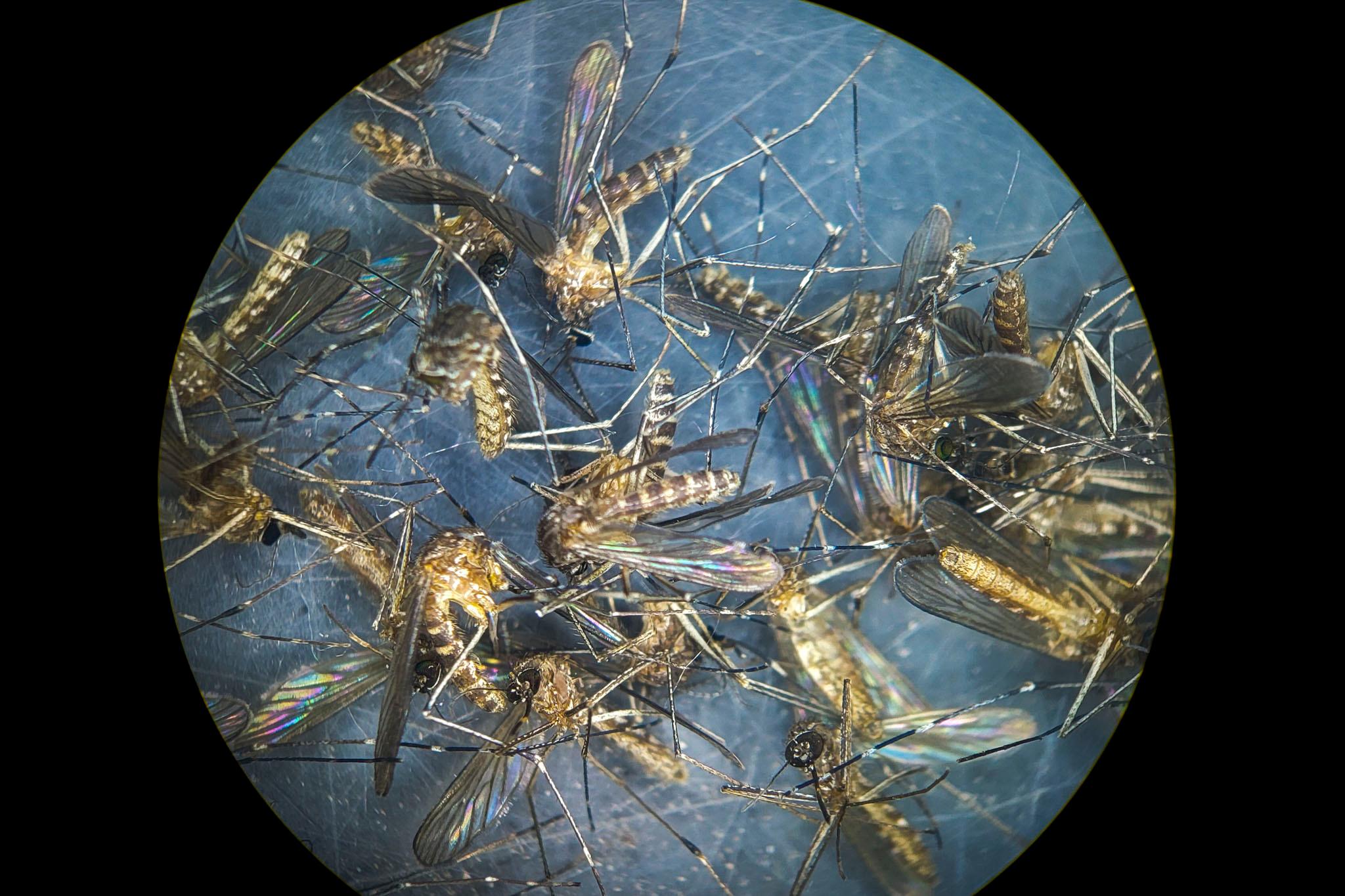“Take caution.”
That’s the message from the Denver Department of Public Health and Environment after the agency confirmed the first human case of West Nile Virus this year.
The virus is mostly spread by mosquito bites. Humans, happily, don’t give it to other humans. But mosquitos give it to birds, birds incubate the virus and give it to mosquitos, and those mosquitos give it to humans.
Humans, to a lesser extent, incubate the virus too.
The first infected mosquitos of the year were found in Denver earlier this month, the first sign West Nile season was back.
That season runs from August through September, and cases can occur between May and December, though most mosquitos will likely be gone by the end of October or after the first fall freeze.
Some people are more easily harmed by West Nile virus than others.
If you’re over 50 or have a weakened immune system, you are more likely than others to develop symptoms.
And those symptoms can be gnarly: fever, extreme fatigue, headaches, body aches and even rashes and swollen lymph nodes.
Symptoms show up three to 14 days after a bite — and some can be permanent, even deadly.
In the worst cases, you can suffer from encephalitis, the inflammation of the brain, and meningitis, the inflammation of the brain’s lining. You can lose vision, be paralyzed, go into a coma, and have tremors and convulsions.
So, what’s the history of West Nile virus in the state?
West Nile Virus was first detected in Colorado in 2002 The following year was the worst on record, with 160 cases and nine deaths in Denver alone, according to Alan Polonsky, the senior environmental analyst for DDPHE, who handles mosquito control efforts for the city.
Last year, 2023, was nearly as bad, after massive amounts of snow and rain dumped on the metro, creating perfect conditions for mosquitos to breed.
Most years, the city experiences fewer than 20 cases and two deaths.
Happily, 2024 is more of an average year, he said.
If you’re looking for something to worry about, West Nile Virus is probably not it. COVID-19, homicide, suicide and car crash fatality rates are all far higher.
Still, DDPHE wants you to protect yourself from West Nile virus. Here’s how.
If you have standing water on or near your property, do what you can to keep mosquitos from laying eggs.
Weekly, you should empty and clean, turn over, cover or chuck items holding water. Likely culprits, according to DDPHE: “tires, buckets, planters, toys, wheelbarrows, pools, birdbaths, flowerpots, or trash containers.”
If you’re watering the pavement or the street, stop. Doing so can create puddles where mosquitos breed.
And don’t over-water your gardens and lawns.
The city recommends you use Environmental Protection Agency-approved insect repellents with DEET.
Mosquitos hang out around dusk and dawn, so maybe just stay inside during those hours.
Outside, wear loose-fitting, long-sleeve shirts and pants.
Candles, incense and other repellents can help keep mosquitos away.
Doors and windows should have screens. Fix any holes and tears.
There’s little you can do once you have the virus other than wait it out — and hope symptoms go away. They won’t, necessarily. So see a doctor fast.
Mosquito anxiety rising? How worried should you actually be about West Nile virus?
“Yes, it’s something to be concerned about,” said Courtney Ronner, a public information officer for DDPHE. “Yes, take precautions.”
But don't panic. Just be careful.
The people most at risk of infection are those who work and play outside. Following the precautions above will keep them safer.
While the city government continues to attempt to control the mosquito population, it's not the first worry on DDPHE's mind.
“I think the concern about West Nile dropped considerably after COVID,” said Polonsky. “People kind of forgot about it. It just doesn't seem as pressing when you don't have neighbors impacted regularly and you don't see it happening to family members.”
Even so, he said, he tries to stay safe when he’s outside.
“Almost everybody knows somebody that's had West Nile," Polonsky said. "And West Nile is a serious, serious virus, a serious disease.”
For more information, go to the DDPHE website.











